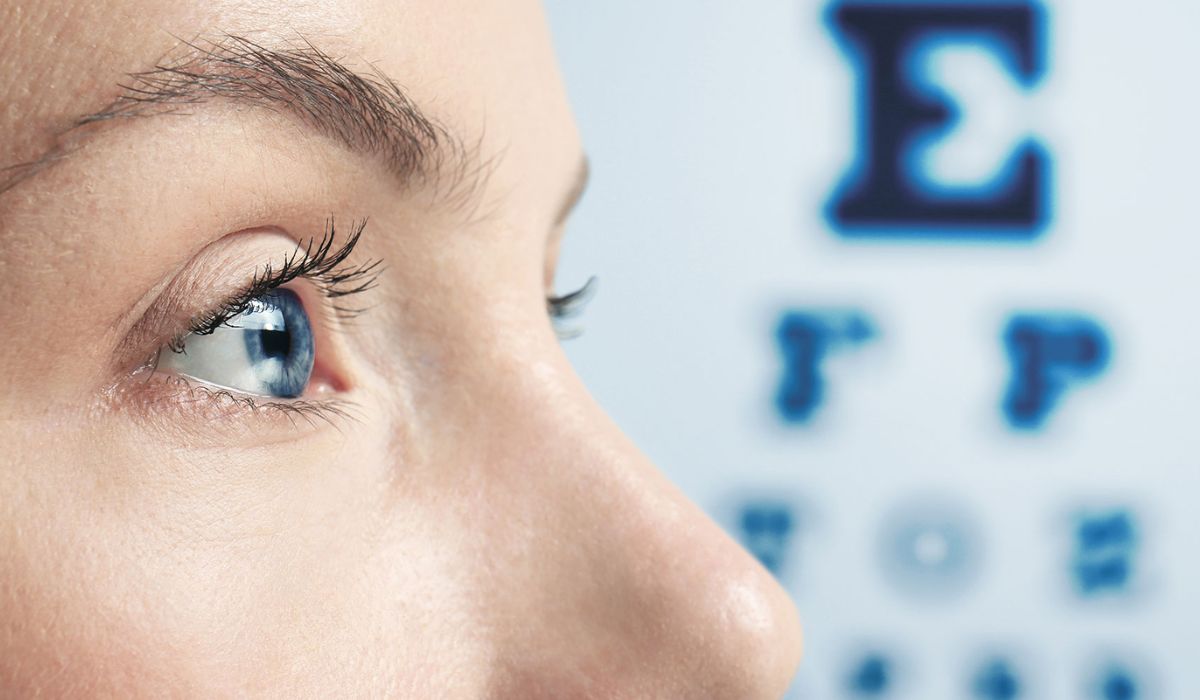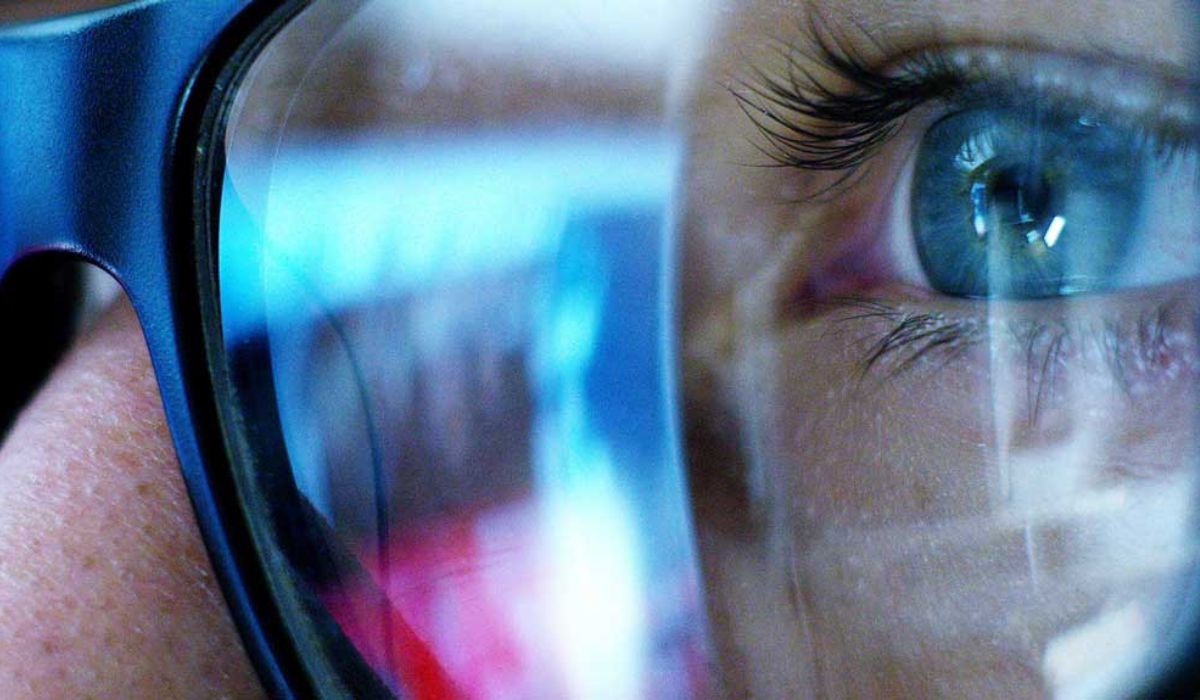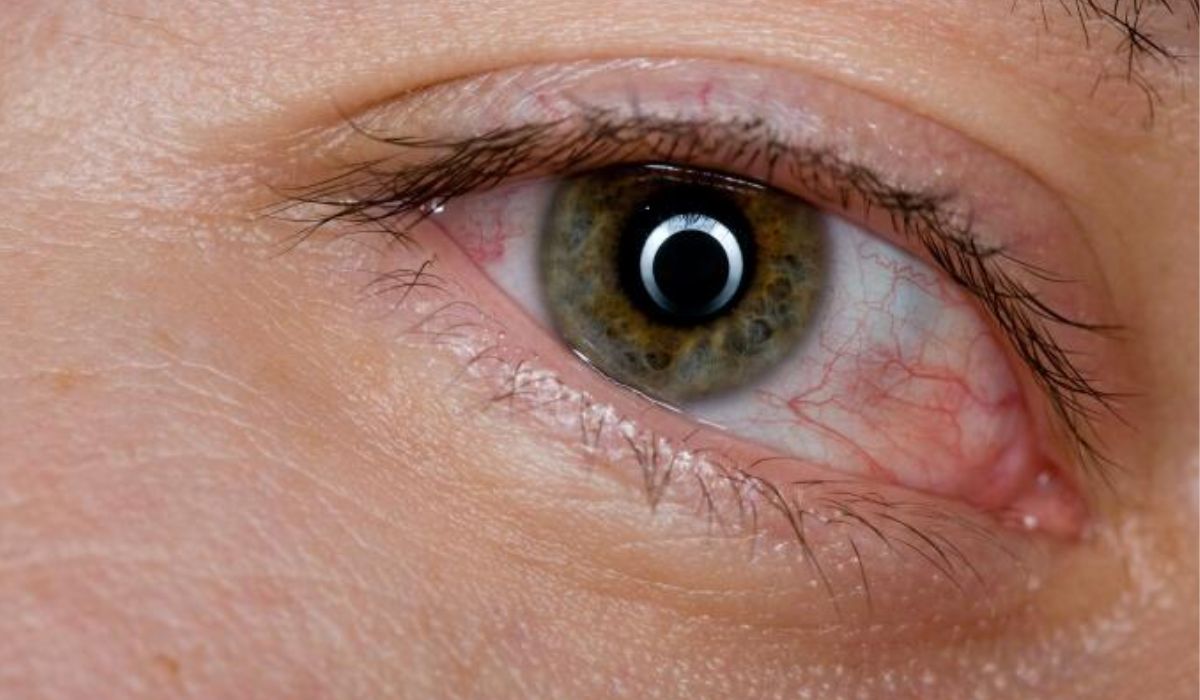
How To Prevent Eye Diseases And Maintain Healthy Eyes
Visit Local Optometrist To Prevent Eye Diseases
One out of every 500 people goes blind yearly because of eye disease. Full eye exams can find problems with your vision early on and suggest ways to treat them. DeCarlo Optometry Placentia is the best optometrist in Orange County. We are proud to serve people of all ages with eye exams, glasses, and contact lenses. Contact us at 714-996-1136 to schedule an appointment and get the best care possible!
Tips On How To Prevent Eye Diseases And Maintain Healthy Eyes
The eyes are an essential part of the body. So, it is crucial to take care of them. Here are some tips to help keep your eyes in good shape and prevent eye diseases.
1. Regular Eye Exams
Eye doctors want everyone to get their eyes checked or have eye pressure treatment. It is essential because it helps you find out how bad your eyesight is before it gets so bad that you can’t see.
2. Wear Sunglasses
If you want to protect your eyes from UV rays, wear sunglasses. UV rays can give you a disease called “sunburn of the eyes.” If you don’t wear sunglasses, you could get the disease.
3. Quit Smoking
Smoking is one of the worst things you can do for your health, but it is especially harmful to your eyesight. Smoking makes you more likely to get cataracts, making it hard to see. If you smoke, the best thing you can do for your eyes is to quit as soon as possible. There are many resources available to help you quit smoking for good. So take advantage of them and make your vision a priority.
4. Eat Healthy Foods
Specific vitamins and minerals are essential for maintaining healthy eyesight. For example, omega-3 fatty acids found in fish and nuts can help reduce the risk of AMD. Vitamin A and C are also important for eye health. So make sure to include plenty of fruits, vegetables, and whole grains in your diet.
5. Exercise
Exercise is good for your whole body and also helps you see. It can help people who have trouble seeing, like people with diabetes.
Here are some simple things you can do to help your eyesight:
Blink Your Eyes
It can keep your eyes from drying out and make them less tired. Every five seconds, you should blink when you look at something up close. Every fifteen seconds, you should blink when you look at something far away. This will keep the moisture in your eyes from drying out.
Look At Things At The Distance
When you look at something from a distance, your brain can figure out what it is faster than when you look at it up close. This is because your brain has to pay more attention to things close to you than to things far away.
Focus On One Thing From A Distance
Putting your attention on one thing at a time also helps your eyesight. This is because your brain can process information faster when focused on a single task.
Talk to your doctor if you are worried about your eyes or vision. Regular checkups can help find problems early when they are easier to treat.


6. Take Breaks From Screens
If you spend a lot of time looking at screens, taking breaks is essential to rest your eyes. Try to look at something else at least 20 feet away for at least 20 seconds to help reduce eye strain.
7. Reduce Eye Strain
If things on the computer are too bright or dim, you may get eye aches. If this happens, turn your computer screen brighter or darker. You should also take breaks and blink often. If you wear glasses, replace them as instructed to prevent infections.
8. Wear Safety Glasses
Suppose you work with power tools or are exposed to harmful chemicals. It is essential to wear safety glasses to protect your eyes from injury.
9. Manage Your Medical Conditions
It will help if you correctly treat diabetes, high blood pressure, and autoimmune diseases. This will help make problems less likely. Take all medications exactly as your doctor tells you to.
These tips can help you keep your eyes in good shape. Call a Keratoconus doctor near you if your eyes hurt.
Common Eye Diseases And Their Treatment
You can treat most eye diseases, but if they aren’t, they can make you blind. Read on to learn about some of the most common diseases and how to treat them.
Age-Related Macular Degeneration (AMD)
It makes people over the age of 50 go blind. It happens when the macula, a part of the retina that lets you see small details, is damaged or sick. It affects 10 million Americans, and as our population ages, it will likely worsen.
It can worsen over time, but treatments can help slow it down and keep your eyesight. These include:
Anti-VEGF Injections
These injections block a protein that helps new blood vessels grow. They are usually given every four to eight weeks and can effectively treat wet AMD.
Laser Surgery
This surgery is used to destroy abnormal blood vessels in the eye. It is most often used to treat wet AMD, but you can also use it for some types of dry AMD.
Vitamins And Minerals
Some studies show that vitamins and minerals may slow the progress of dry AMD. C, E, beta-carotene, copper, zinc, and lutein are all vitamins. If you can, try to get the nutrients you need from food instead of supplements.


Glaucoma
The optic nerve is hurt by glaucoma. Information from the eye goes to the brain through the optic nerve. High pressure inside can lead to glaucoma (IOP). Extra pressure can hurt the optic nerve, which can cause you to lose sight.
Glaucoma is the second most common reason people in the United States go blind. You can stop most vision problems if they are found and treated quickly.
You can treat glaucoma with medication, surgery or a combination of both. The type of treatment will depend on the type of glaucoma and its severity.
Eye Drops
These help lower intraocular pressure by either decreasing the amount of fluid produced by the eye or increasing the outflow of fluid from the eye.
Oral Medications
These help lower intraocular pressure by decreasing the amount of fluid produced by the eye.
Injections
These help lower intraocular pressure by inhibiting the production of aqueous humor. This fluid fills the space between the cornea and iris.
Laser Surgery
This surgery improves fluid outflow by making openings in the trabecular meshwork. This tissue drains fluid from the eye.
Filtering Surgery
This surgery is used to improve the outflow of fluid by creating a new drainage pathway for the fluid.
Glaucoma Shunt Surgery
This surgery is used to improve fluid outflow from age by implanting a small device (shunt) that drains fluid into another area of the body.
You must see your doctor regularly for follow-up exams if you have glaucoma. These exams will help your doctor determine if your glaucoma is worsening and if your treatment is working. Look at glaucoma symptoms and treatments to prevent vision loss from this disease.
Cataracts
A cataract is a clouding of the eye’s lens. The lens is a clear part of the eye that helps focus light. The clouding can make it difficult to see.
Cataracts are very common, especially in older adults. In fact, by age 80, more than half of Americans either have a cataract or have had cataract surgery.
Most cataracts develop slowly and don’t disturb vision early on. But as they grow, they can cause vision problems.
If you experience any of these symptoms, see your doctor. It can usually treat cataracts with any of the following:
Surgery
Cataract surgery is usually very successful in improving vision. It’s typically done on an outpatient basis, so you won’t have to stay in the hospital overnight.
Wearing Eyeglasses Or Contact Lenses
If your cataracts aren’t severe, you may be able to improve your vision by wearing eyeglasses or contact lenses.
Adjusting Your Environment
Lighter colors or more light may help people with mild cataracts.


Eye Pressure
There is a wide array of eye diseases that can affect the health of your eyes. This is one of them; you can treat it with medication or surgery.
It occurs when the fluid in the front part of your eye (cornea) increases. The increased pressure pushes against the back wall of your eye (retina), which can damage it.
Eye Pressure Treatment depends on how much pressure and long you’ve had it. Treatment may include:
Medication
Your doctor may prescribe pills or eyedrops to lower the pressure, causing the fluid to drain more quickly from the front chamber into the back chamber (aqueous humor).
Surgery
If the medicines don’t work, your doctor may suggest surgery to remove some or all the extra fluid in your eyeball.
Laser Therapy
Your doctor might use a laser beam to make small holes in your eye’s drainage system. It can help get fluid moving better and lower pressure in your eye.
Talk to your doctor if you have any concerns about your vision. Regular checkups can help find problems early when they are easier to fix.
Macular Degeneration
It is a disease that harms the macula. The part of the eye that lets you see small details is called the macula. This can hurt your eyesight and make it hard to do everyday things like reading and driving. It is the most common reason why adults over 60 lose their sight.
You can’t cure it, but some treatments can slow it down and help keep your sight:
Vitamins And Minerals
You can make it worse slowly by taking vitamins and minerals. C, E, beta-carotene, zinc, and copper are all vitamins. Your doctor may tell you to take a supplement daily or eat foods like leafy greens, fish, and nuts.
Anti-VEGF Drugs
Wet AMD is treated with drug injections that stop the growth of abnormal blood vessels. They prevent blood from leaking from blood vessels.
Laser Surgery
Wet macular degeneration is treated with this surgery. It can shrink blood vessels that aren’t working right and are leaking.
Diabetic Retinopathy
Diabetes can cause damage to the blood vessels in the retina. It is the most common reason adults ages 20 to 74 go blind.
Most of the time, both eyes are affected by diabetic retinopathy. Because it often doesn’t show early signs, you might not know you have it.
Diabetes needs control of blood sugar and regular checkups. If diabetic retinopathy isn’t treated, it can cause vision loss. Some options for treatment are:
Observation
Your doctor may tell you to get regular exams if you have mild diabetic retinopathy. No treatment is necessary.
Laser Surgery
During laser surgery, abnormal blood vessels are destroyed, and leaky ones are sealed. It is done outside of a hospital and doesn’t require anesthesia.
Injections Of Anti-VEGF Drugs
These medicines help stop abnormal blood vessels from growing and improve vision. It is injected into the eye and can be done outside a hospital.
Vitrectomy
This procedure removes the vitreous, the jelly-like substance inside the eye and replaces it with a clear solution. Most of the time, it is done outside of a hospital and requires general anesthesia.


Retinal Detachment
It happens when the retina pulls away from the blood vessels that bring oxygen and food to it. This can make you go blind.
You should immediately call an Emergency Optometrist Near Me if these things happen. A retinal detachment is a serious medical emergency. If it isn’t treated quickly, it can cause permanent vision loss.
There are several ways to treat retinal detachment:
Laser Surgery
A laser is used to make minor burns around the retina. This leaves a scar that helps keep the retina in place.
Cryotherapy
The retina is frozen with a special probe. It makes scar tissue, which helps keep the retina in place.
Vitrectomy
The vitreous is replaced with saline (the jelly-like substance inside the eye). This keeps the retina in place so that doctors can work on it.
Conjunctivitis
“Pink eye” is another name for conjunctivitis (the clear membrane covering the eye’s white part). It can be brought on by viruses, bacteria, allergies, or things like dirt or smoke that irritate the skin.
Your doctor might tell you not to wear contact lenses or makeup while you have conjunctivitis. Antihistamines, artificial tears, and antibiotics are all ways to treat it. Conjunctivitis can be treated differently, depending on what caused it and how bad it is.
Warm Compresses
The irritating dust or smoke particles will disappear when you put a warm compress on your child’s closed eyelids. It gets rid of discharge faster than letting it go away on its own.
Antihistamines
Suppose allergies are to blame for your child’s conjunctivitis. Antihistamines you can buy without a prescription can help with symptoms like itching and watery eyes. But they won’t get rid of the infection.
Antibiotics
If your child has bacterial conjunctivitis, antibiotics will be given to them. These can come in the form of pills, eye drops, or creams.
Artificial Tears
These can help soothe irritated eyes and are available without a prescription.
You can keep your eyes healthy as you get older if you take care of them. Checkups help you keep track of your health as a whole. If you already know you have an eye disease, you can still live a healthy and active life.
If you are looking for Orange County eye doctors, choose DeCarlo Optometry Placentia. Get the one-on-one time you need to check your eyes and ensure you’re seeing the best service you can. We’ll help ensure your eyes are in good shape. Contact us at 714-996-1136 and fill out this form to schedule an appointment!
DeCarlo Optometry Placentia Offers The Following Services:
Articles We've Hand-Picked For You:
Frequently Asked Questions
- Go for regular eye exams.
- Eat vision-healthy foods.
- Keep your weight under control.
- Wear sunglasses when outside
- Rest your eyes regularly.
Your eyesight is one of your most important senses, accounting for 80% of what we perceive. By protecting your eyes, you can reduce your chances of blindness and vision loss while also staying ahead of any developing eye diseases like cataracts and glaucoma.
Foods That Are Healthy:
- Raw Red Peppers. Bell peppers give you the most vitamin C per calorie.
- Sunflower Seeds and Nuts.
- Dark, Leafy Greens.
- Salmon.
- Sweet Potatoes.
- Lean Meat and Poultry.
- Beans and Legumes.
- Eggs.
How to Protect Your Eyes from Cell Phones Change the screen settings:
It’s easy to forget that you can customize your screen because it looks great right out of the box! Maintain a Safe Distance. Use Night Mode. Don’t Forget to Blink! Make use of anti-reflective screen protectors. Make use of artificial tears.
Fruits and vegetables are good sources of antioxidants. Red berries, kiwi, red and green bell peppers, tomatoes, broccoli, spinach, and guava, grapefruit, and orange juices
